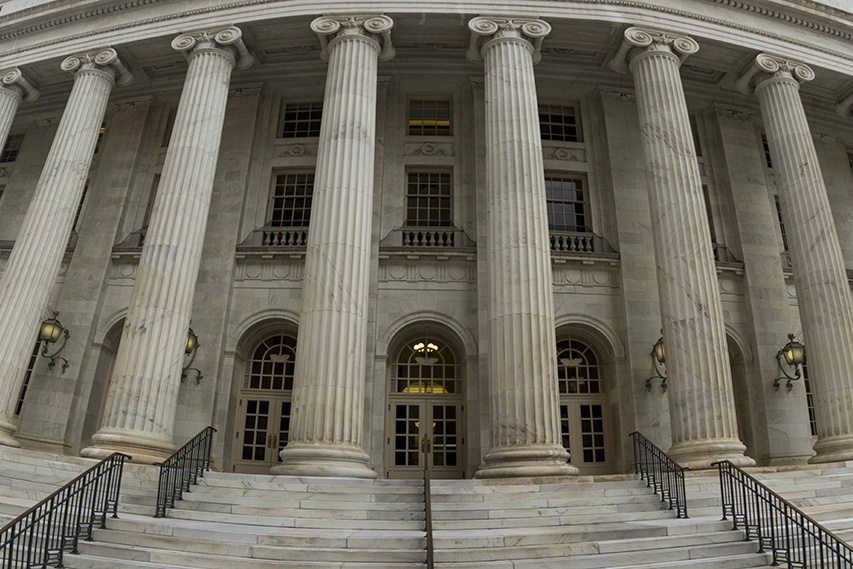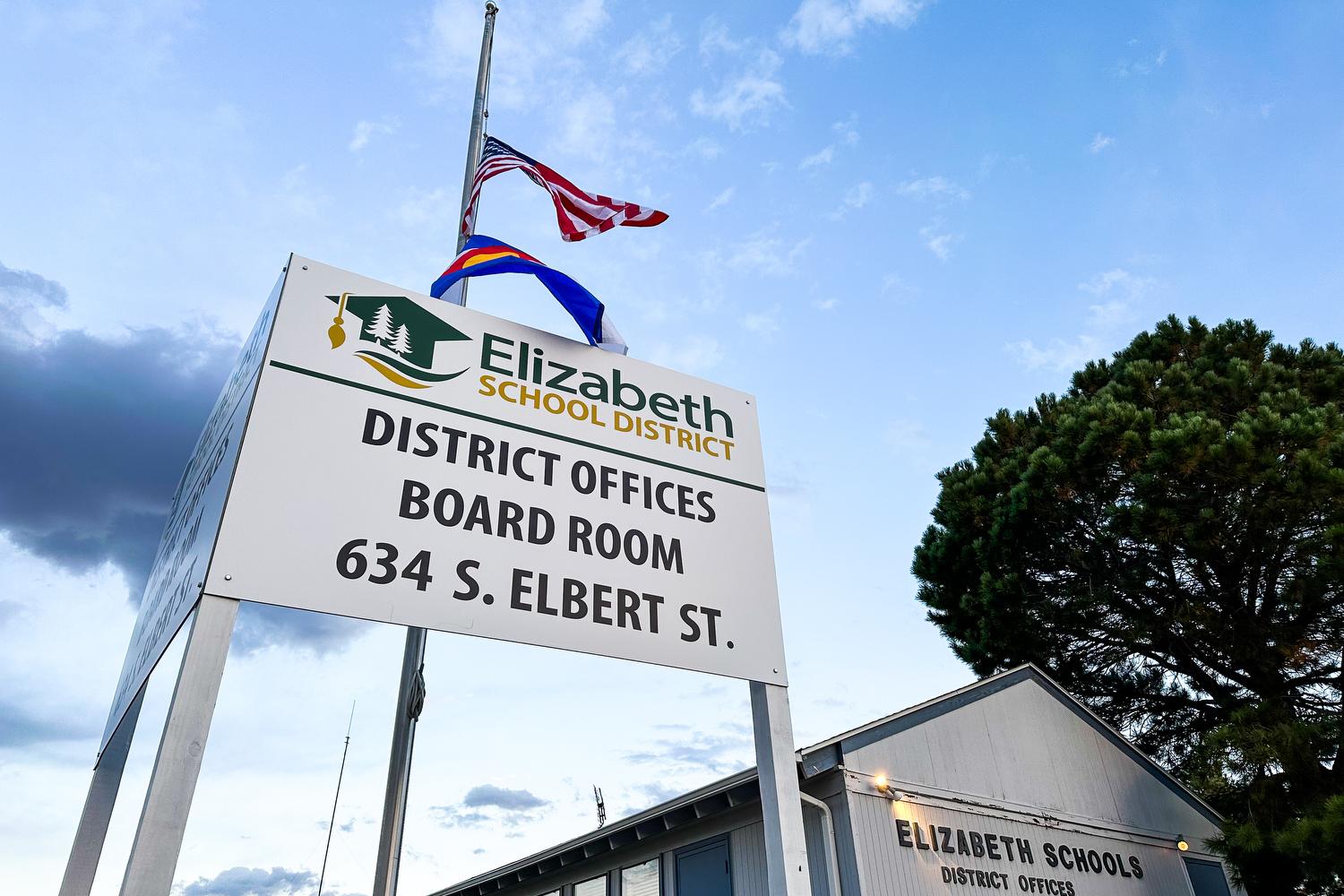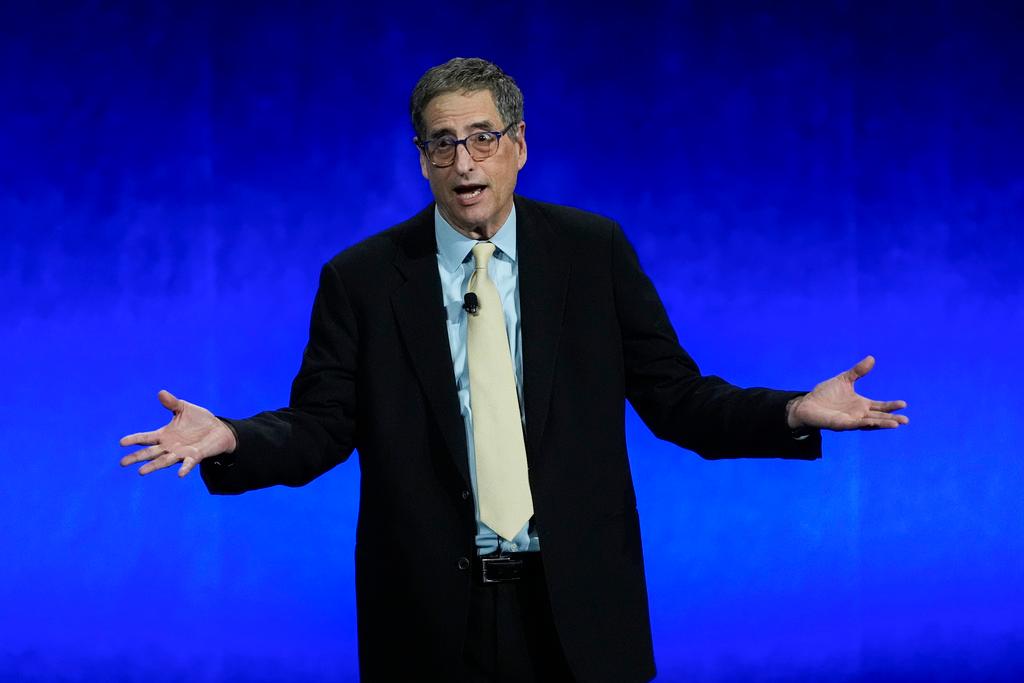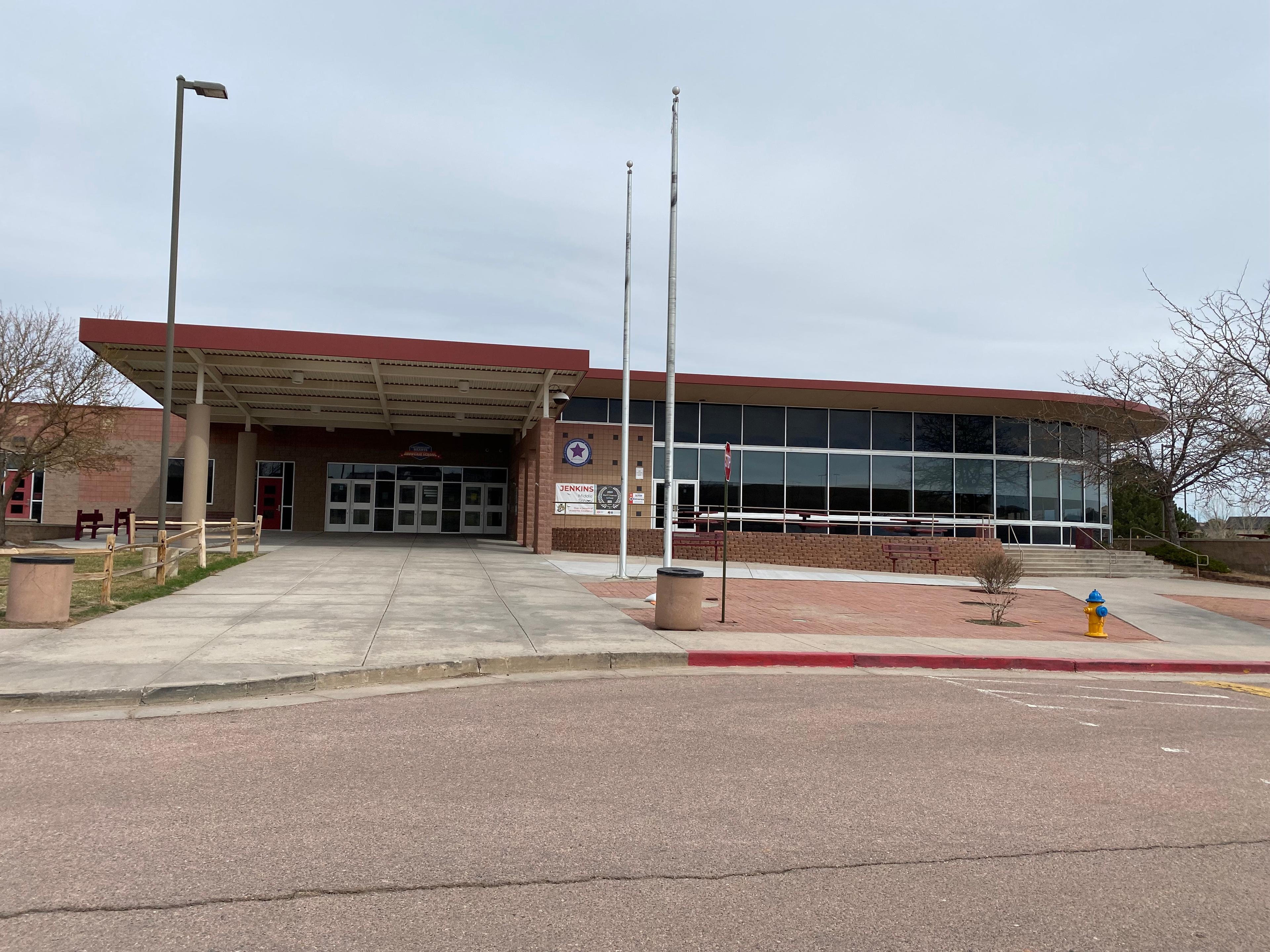
The transportation debate has reached a fever pitch in Colorado: What to do about worn-out roads, debilitating commutes and transit.
In a recent national survey, more than a third of people Denver respondents described their commutes as worse than they were five years ago. And 20 percent said they had quit jobs because of painful commutes. On Twitter, people told CPR News they had even turned down offers for good jobs because of the drive time.
There are two very different proposals this upcoming election to deal with the transportation issue. There's Proposition 109, better known as "Fix Our Damn Roads," and Proposition 110, or "Let's Go Colorado."
- Need Some Ballot Assistance? Read The Colorado Voter’s Guide To The 2018 Election
Proposition 110 would increase the state sales tax to raise $20 billion over the next 20 years, while Proposition 109 would allow the state to borrow $3.5 billion in bonds for road improvements that would be paid off with existing state funds. On Colorado Matters, Denver Chamber of Commerce President Kelly Brough backed 110 while Independence Institute President Jon Caldara supported 109.
Full Transcript
Ryan Warner: This is Colorado Matters from CPR News. I'm Ryan Warner. Voters in Colorado face a key question right now, what to do about transportation, gridlock, worn out roads, deteriorating bridges. In a recent survey more than a third of people in Denver described their commute as worse than it was five years ago. Twenty-percent said they had quit their jobs because it's such a pain to get to work. Now when I tweeted about that survey several folks responded with their stories. Here's what Melanie Tomitsch wrote in a tweet, read here by a member of our staff. Melanie Tomitsch, as read by CPR staff: I'm a consultant, and even though the year was slow, one of the reasons I didn't pursue a proper job was the thought of commuting. RW: Another CPR staffer reads a tweet from Dan Rutherford who was actually offered a full-time job, but turned it down. Dan Rutherford, as read by CPR staff: I had a short term project that evolved into a full time position if I wanted, but declined. Great company and fantastic team. Only downfall was the drive. RW: Well, this election voters will consider two very different proposals to deal with transportation. We're joined by a supporter from each side. Kelly Brough is President of the Denver Chamber of Commerce. She heads a statewide coalition of business leaders who back Proposition 110. It's a state sales tax increase that would raise $20 billion over the next twenty years for a mix of roads and transit. Hi, Kelly. Kelly Brough: Hi. Thanks for having us on. RW: Jon Caldara runs a Libertarian think tank called, The Independence Institute. His plan is Proposition 109, nicknamed, Fix Our Damn Roads. It would allow the state to borrow $3.5 billion for road improvements, but there'd be no tax increase. The bonds would be paid off with existing state funds. Hi, Jon. Jon Caldara: Good Morning. Thanks for having me. RW: We'll go in number order. Jon, with 109, briefly, how is your approach going to help solve the transportation problem in Colorado? JC: First of all, let's take a look at some of the frustrations that your listeners are having. It's not a surprise when you look at the state budget over the last twenty years. We are spending now in outlays three times more than we did twenty years ago, yet our road funding has remained flat. Imagine making three times as much in income, but not putting any more into your retirement savings account. That's what the state has done. We're saying, we need to rebalance that. That the reason we're stuck in this terrible traffic jam on our state highways is because the state hasn't been keeping up with this core function of government. Next to public safety, transportation is the key function of our state government, and they have been starving our roads as our population has been exploding. Now that we have such incredible surpluses coming into the state, we're saying let's take a fraction of that new surplus and use that to build our roads. RW: All right. You want the state then to live within its current means under what has been economic expansion as certainly in the last few years. All right. Kelly Brough as I said, the measure you support Prop 110 would raise the state's sales tax by just over 6/10ths of a percent raising about $20 billion over the next two decades. You'd borrow $6 billion upfront to get work started. What will that money buy a frustrated commuter? KB: Well, it'll buy a seriously improved transportation system. As your listeners pointed out, we all agree we need to fund our system better. It's been thirty years since we've done anything meaningful to impact our transportation. As a matter of fact, today we're funding our system at about half what we were funding per driver in 1991 and that's why our experience is so bad. It brought together a huge state wide coalition that we've been working with. It includes representatives from urban Colorado, rural Colorado, Democrats, Republicans, state officials, local elected officials, business leaders, labor groups, all saying for a small increase, six cents on ten dollars, we can raise about $797 million a year. We can bond out of that money $6 billion in projects; remember CDOT has a $9 billion project list. And we can address local needs. And when you consider that 88 percent of the roads you drive on are maintained by your cities and counties, you have to address both the state and the local needs if you're going to improve our system. RW: CDOT of course, the Colorado Department of Transportation. I will note there's another big difference between these plans. So Prop 109, Fix Our Damn Roads, provides money for state roads and interstates. Prop 110, the tax increase, would fund state and local roads and other transportation projects, maybe like a regional bus system or a bike way that a community might want. You've both painted a picture of the state starving transportation, but in recent years they have directed some additional funds to roads in this state. But Kelly, address this fundamental idea of a tax increase. Colorado's economy is certainly growing, but so is the cost of living. Housing prices, for instance, are among the highest in the country. Why not take a more limited approach like Jon's to avoid a tax increase? KB: Yeah, so the coalition we worked with actually did take a limited approach. There would be a lot in the state who would argue we should be asking for more money. There's a couple of reasons we focused on both a tax increase and a sales tax. So first, while the state has increased revenue, it's projected to hit its Taxpayer Bill of Rights, the Tabor Limit, in 2019, which means the state can't retain that revenue. It will refund it to taxpayers. So you can't use it for transportation or anything else. That reality caused our coalition to say, "You really need to raise revenue dedicated to transportation." RW: You're saying that Tabor mitigates the bounty that we've described here so far. KB: Exactly. RW: Okay. Jon Caldara, what do say to that? JC: Well, first of all, a 21 percent sales tax increase brings a terrible burden on working families. I think about folks in Commerce City who'll be paying close to 10 percent. With all the other sales tax increases in Denver, it could be up to 9 percent sales tax. That hurts working folks right where they live. There's so much money coming into the state underneath the Taxpayer Bill of Rights cap. Thanks to pulling out things called fees, we now have room to bring in so much more money. Remember, the state budget, we're spending three times as much as we did ten years ago, excuse me, twenty years ago. So by borrowing and focusing on jump starting these most critical projects, this is something that's been done before. We called it the TRANS Initiative, the T-Rex project, and I was- RW: This was a widening of I-25 through Denver for instance. JC: And 25 other projects around the state. And we heard, "Oh, it can't be done." The difference back then when Bill Owens pushed it, and voters approved, was the money was actually coming out of the budget. With Fix Our Damn Roads, Prop 109, that money is coming from the surplus money that's coming in. People might not realize, and they will at the end of the year when they do their taxes, that the Trump tax code actually means a tax increase for most people's state income tax. In fact, we'll be bringing in almost $900 million more a year according to the state government. TW: And you think that should be tapped for roads? JC: I think some of it should be. RW: Mm-hmm (affirmative). JC: When you see how much we've starved roads over the last 20 years, we need to reprioritize. RW: When I look at both Prop 109 and 110, another difference I see is just the amount of money that would be generated. What do you say, Jon Caldara, to those who complain that 109 is just a drop in the bucket? JC: It's not a drop in the bucket, it is a serious amount of money to jump start the most critical projects. I'll be really clear and concede this is not a silver bullet. Nor is it a unicorn bullet, like 2110. RW: A unicorn bullet? JC: I like that. RW: I've never heard that term before. RW: All right and on 110, Kelly Brough to this idea of the sales tax increase. You are hearing from mayors like the mayor in Colorado Springs, who says, "Listen, we've already passed some local taxes to address our own local transportation needs," along comes the state, perhaps, with its own tax increase and the burden is just going up too high in our specific community. Would you address that concern for us? KB: Yeah, you have two huge issues. First, rural Colorado, local communities there are not gonna be able to, on their own, solve their transportation needs and why would we, in the metro area, care about that? It's because we have a workforce who cares about getting around the state. It's part of the quality of life we sell here. If you're gonna fix a system, you have to fix it, not city by city and hope everybody comes up with their contribution, but you have to fix both the state system and the local system. RW: Do you have any concerns that the tax rate is getting too high in some Colorado communities? KB: So our tax rate, when you combine both state and local is still very competitive in the country and so we don't have concerns about it. Our greater concern is our failure to invest is impacting us greatly. A study was done, Ryan, that shows each of us today as paying over $2,000 a year in using more gas because we're sitting in traffic, damage to our vehicles because of the condition of our roads, more accidents, $2,000 a year. You talk about impacting working families, this small increase in sales tax will help reduce that cost. RW: Jon Caldara, there's nothing- JC: First, let me say that at 21 percent jump in our state sales tax is not a small amount. It is a serious investment. RW: I haven't done the math on the fly, is that right? 21 percent? KB: No, the math is wrong. What you pay in sales tax, this will be roughly about a 7 or 8 percent, what you pay in sales tax total. JC: Our current sales tax is 2.5 percent on the state level, this adds another .62, that is an increase of 21 percent. Any way you cut it, it means that places like Boulder and Longmont and Superior will be paying 9 percent. Same thing down in Colorado Springs, which is why mayors like the one in Jamestown and all over say, "Wait a second, this could hurt our ability locally if we want to raise more taxes for local mobility, local projects for seniors, local safety projects." By the way, let me, I want to concede a couple things, we both agree, not enough money is going in to transportation. RW: Yes, that's right. JC: And I also agree, something that Kelly said often is that, there's a problem with our, the way we tax what we do right now. We do mostly on a gas tax. As our cars become more efficient, that means we're not getting as much back. So we're going- RW: It's been many years since the gas tax has been increased. Let me just say that you're listening to Colorado Matters, I'm Ryan Warner and as part of our midterm election coverage we are debating, politely discussing propositions 109 and 110 on your ballot, they both have to do with transportation, they take different approaches and Jon Caldara, I'll note that 109, Fix Our Damn Roads, really does not make any funds available for alternative transportation. That's a key difference here, why? JC: Well, when you take a look at how much the state has been putting into transit, it's not as though transit systems are starving for money. Last year, RTD's appropriation was about $2.2 billion dollars, and they carry only a fraction of our commute, about 3 percent or 4 percent. Whereas, CDOT got a whopping $1.4 billion, in other words, almost half. In other words, we're spending a lot of money on transit as it is, our roads are in trouble and we need, we're at a crisis and we need to start investing in these problems, otherwise we're going to have safety issues, and people could lose their lives if we don't make roads safer in a realistic way. RW: Okay. You are basing Fix Our Damn Roads, in part, on the economic bounty that Colorado is experiencing. I want to play the view of the current governor; this is John Hickenlooper. I asked him about Prop 109. Governor John Hickenlooper: Fix Our Damn Roads would want to bond, basically borrow, $3.5 billion, and the state would have to pay that back every year with no new resources, and I think that's crazy that the people proposing this are not willing to say where they're gonna make these cuts, how many people are gonna lose healthcare coverage, how much are we gonna pull back from our education funding. RW: All right, so as he tells it, other things will suffer if 109 goes forward. Address that. JC: I've seen these scare tactics before, but we've done this before with the T-REX plan and in fact, with the help of the Denver Chamber, back when we didn't have these massive surpluses pouring in to the state. Now I understand there are those- RW: Isn't that a sort of bellwether or good weather prediction? What happens if the economy tanks? JC: No, because there is a structural change to federal tax law, which means a federal, a change to our taxes as well. RW: You think that Trump tax cuts lend a certain stability to this? JC: Well, what happens is, the line item you take from your federal form to do your state income taxes, that goes up dramatically. If we wanted it to be revenue-neutral, we'd have to lower the tax rate. But let me just say this, other governors, like Bill Owens, partnered with the Denver Chamber of Commerce twenty years ago to do something when we had even less money. So to say that even if times were awful that we could not reprioritize less than 1 percent of our spending towards roads, I don't know any household that couldn't reprioritize 1 percent of their budget. RW: And of course, tax policy doesn't necessarily say the same. That could change too, if an administration changes- JC: Well, we have so much in revenue, I'm just, one last thought. If we wanted to, we could pay this off in three years with the amount of surpluses we have. So we have lots of choices. RW: I want to say, Kelly, that Governor Hickenlooper does back Prop 110, the tax increase, but you're not getting rousing support from either of the two candidates running to replace him, the major party candidates. The Republican, Walker Stapleton sides with Jon Caldara in favor of the bond issue without a tax increase. And Democrat Jared Polis isn't too hot on the idea of a sales tax increase to pay for this. KB: What do I say to that? RW: Yeah. KB: Yeah. RW: The question is implied, I suppose. KB: So I think what we, when you look at our coalition, what you're going to see is a huge diverse coalition, many of whom normally don't support tax increases. And the Chamber is not a huge fan of tax increases until you do the math and you realize the only way we're going to address and improve our transportation system so our lives are better is if we fund it. And one of the reason we like sales tax is the first $92 million that's raised is paid by tourists, people who visit our state. And so that was one of the reasons the coalition supports a sales tax as the strategy. RW: So I saw the results of a recent poll, and I think the poll was actually partly funded by The Independence Institute and Fix Our Damn Roads, but it does show that people lean towards 109, Fix Our Damn Roads, of those who are decided. There are many undecided, we should say, on this topic. Can we talk through, just briefly, voter confusion or perhaps even voter generosity; the idea that one of these might pass, both of these might pass, neither of these might pass. I mean, in many ways, you have dueling measures, here, Jon. JC: I think it's more likely that neither would pass, than both would pass. If both were to pass, then terrific, we've got lots of funding for lots of things. I have a feeling one or the other will pass and given a history of tax increases statewide, and polling, not only from that we've done, but also polling that groups like the Denver Chamber have done with Tarrance Group, we have seen that this is not a very popular proposal. But we'll find out on Election Day and we can vote either way. RW: I'll give you the last word, Kelly Brough. KB: We have done a lot of polling and research. Our initiative, Prop 110, is built around what voters value. Local control, money coming into their communities, an identified list of priorities, twenty years it goes away. The biggest projects that improve their quality of life. And voters have consistently told us they like this and support it. RW: Thanks for being with us, both of you. JC: Thank you. RW: Kelly Brough, President of the Denver Metro Chamber of Commerce. She heads a coalition in favor of Prop 110 to raise the state sales tax for transportation. Jon Caldara heads the Libertarian Independence Institute. He supports Proposition 109, otherwise known as Fix Our Damn Roads. It would raise $3.5 billion in bonds and repay them with existing state funds. And we'll note again that with two ballot measures addressing the same issue, there are any number of outcomes. So if they both pass, there would presumably be a bigger infusion of money for transportation and some details that might have to be worked out legally. And if neither pass, the legislature has a plan to go to voters with a funding measure in 2019. This is Colorado Matters from CPR News. |









